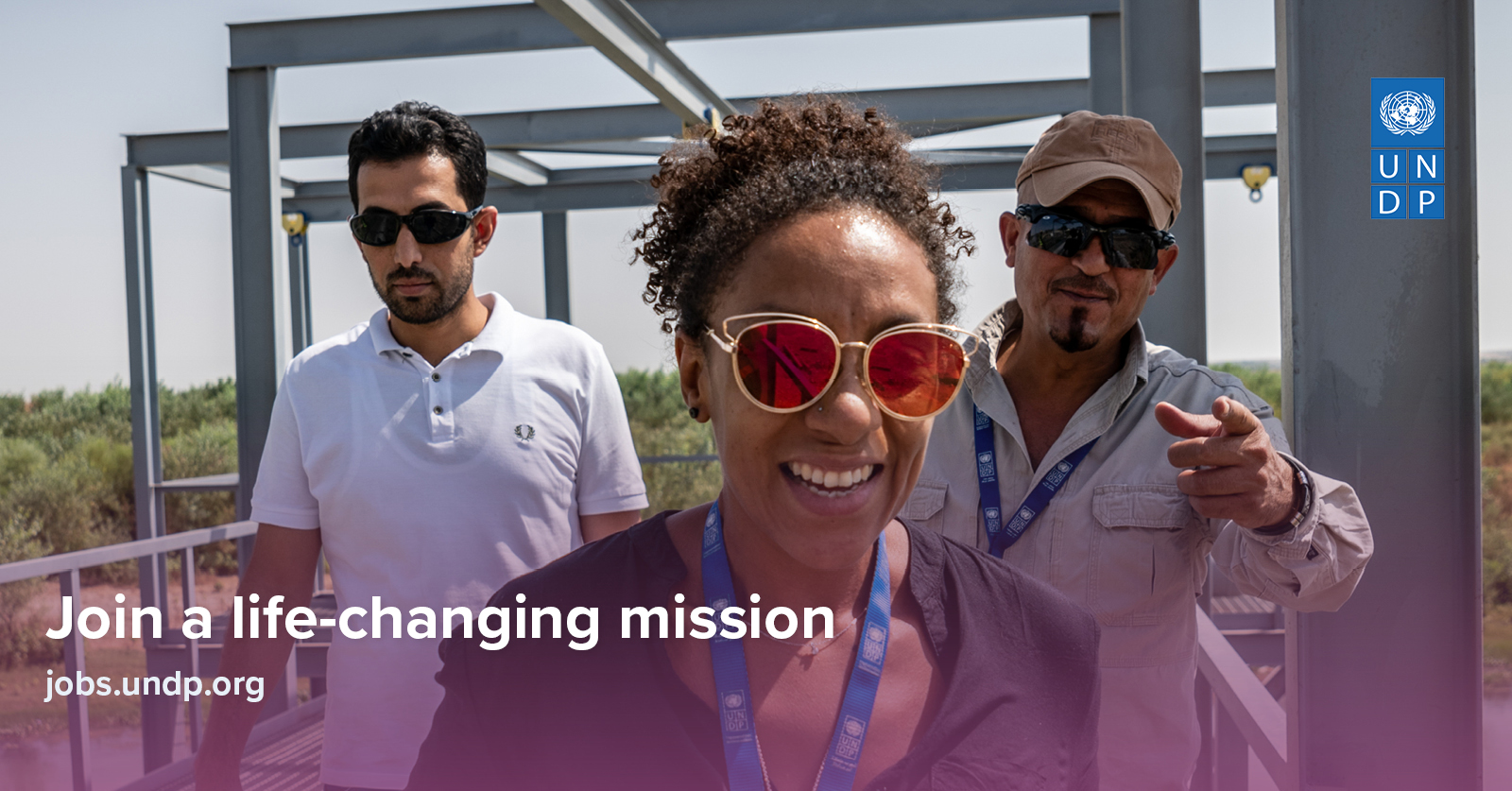
UNDP is the knowledge frontier organization for sustainable development in the UN Development System and serves as the integrator for collective action to realize the Sustainable Development Goals (SDGs). UNDP’s policy work carried out at HQ, Regional and Country Office levels, forms a contiguous spectrum of deep local knowledge to cutting-edge global perspectives and advocacy. In this context, UNDP invests in the Global Policy Network (GPN), a network of field-based and global technical expertise across a wide range of knowledge domains and in support of the signature solutions and organizational capabilities envisioned in the Strategic Plan.
Within the GPN, the Bureau for Policy and Programme Support (BPPS) has the responsibility for developing all relevant policy and guidance to support the results of UNDP’s Strategic Plan. BPPS staff provide technical advice to Country Offices, advocates for UNDP corporate messages, represent UNDP at multi-stakeholder fora including public-private, government and civil society dialogues, and engage in UN inter-agency coordination in specific thematic areas.
UNDP’s 2022-2025 Strategic Plan highlighting our continued commitment to eradicating poverty, accompanying countries in their pathways towards the SDGs and working towards the Paris Agreement. As part of the Global Policy Network in the Bureau for Policy and Programme Support, UNDP’s Nature, Climate Change, Energy, and Waste (NCE&W) Hubs promote and scale up integrated whole-of-governance approaches and nature-based solutions that reduce poverty and inequalities, strengthen livelihoods and inclusive growth, mitigate conflict, forced migration and displacement, and promote more resilient governance systems that advance linked peace and security agendas.
BPPS’ Hubs on Nature, Climate, Energy and Waste, with the support of a Vertical Fund Programme Support, Oversight and Compliance Unit, work with governments, civil society, and private sector partners to integrate nature, climate, energy and waste related concerns into national and sector planning and inclusive growth policies, support country obligations under Multilateral Environmental Agreements, and oversee the implementation of the UN’s largest portfolio of in-country programming nature, climate change, energy and waste. This multi-billion-dollar portfolio encompasses:
- Biodiversity and Ecosystem Services including forests;
- Sustainable Land Management and Desertification including food and commodity systems;
- Water and Ocean Governance including SIDS;
- Climate Change Mitigation and Adaptation;
- Sustainable Energy;
- Extractive Industries;
- Chemicals and Waste Management;
- Environmental Governance and Green/Circular Economy; and SCP approaches.
This work advances crosscutting themes on innovative finance, digital transformation, capacity development, human rights, gender equality, health, technology, and South-South learning.
Energy is one of UNDP’s six signature solutions – alongside poverty and inequality, governance, resilience, environment, and gender equality – to support countries towards three directions of change: structural transformation, leaving no one behind and resilience.
As per UNDP’s new Strategic Plan 2022-2025, the first objective of UNDP is increasing energy access for those furthest behind. By speeding up investment in distributed renewable energy solutions, especially for those hardest to reach and in crisis contexts, it aims to increase access to clean and affordable energy for 500 million people.
Second, UNDP will work to accelerate the transition to renewable energy through systems changes that support inclusive, green economies, particularly in countries with low levels of renewable energy generation or poor energy-efficiency improvement rates. This work will capitalize on technological gains, clean energy innovations and new business models in the energy sector.
The newly established UNDP Sustainable Energy Hub (SEH) will be the arrowhead of UNDP’s new Strategic Plan objectives. The Sustainable Energy Hub will build on UNDP’s existing Energy Portfolio, covering over 100 countries to harness clean energy and support the energy transition as well as on UNDP’s Climate Promise, UNDP’s Sustainable Finance Hub, and UNDP’s Digital offer.
The Sustainable Energy Hub will develop and operationalize, policies, programmes and partnerships to support the realization of UN/UNDP’s Energy Compact, a commitment to help increasing access to clean and affordable energy for 500 million people by 2025 and accelerating and supporting the transition to renewable energy.
Recognizing that change will be disruptive, UNDP will work to ensure that such transitions are just, and that their impact on vulnerable people is understood and duly mitigated.
The intern will work closely to the Sustainable Energy Hub to support UNDP’s approach to tracking progress towards the 500 million goals. This will be done by supporting the identification and the mapping of UNDP’s existing projects, initiatives and activities related to energy, and the monitoring and evaluation of the targets and results of the UNDP energy portfolio worldwide. The intern will provide technical data expertise to support the creation of a database with interactive maps and visualizations of the Vertical Fund and non-Vertical Fund projects on energy access. This database and visualization tools will later be shared with UNDP country offices for validation and updating.
UNDP is looking for a talented, motivated, and enthusiastic intern that will work closely to the SEH to support the UNDP energy portfolio mapping and data management activities.





